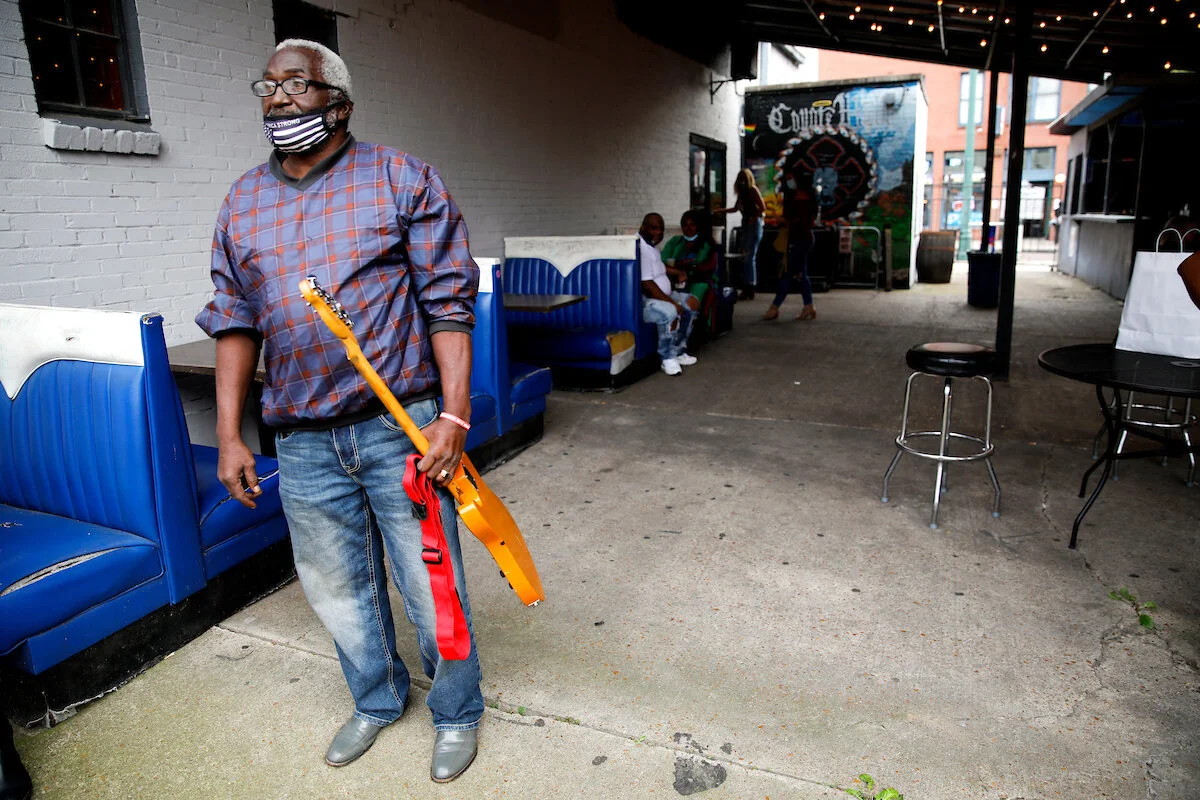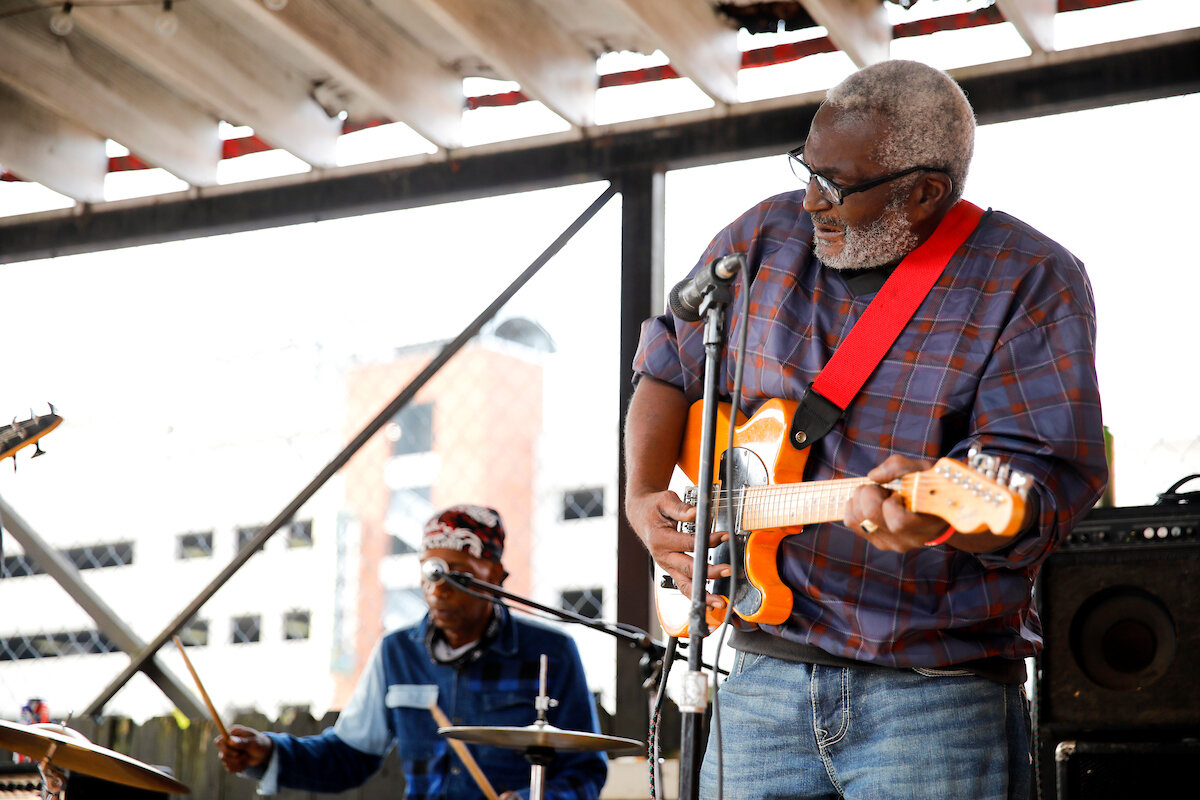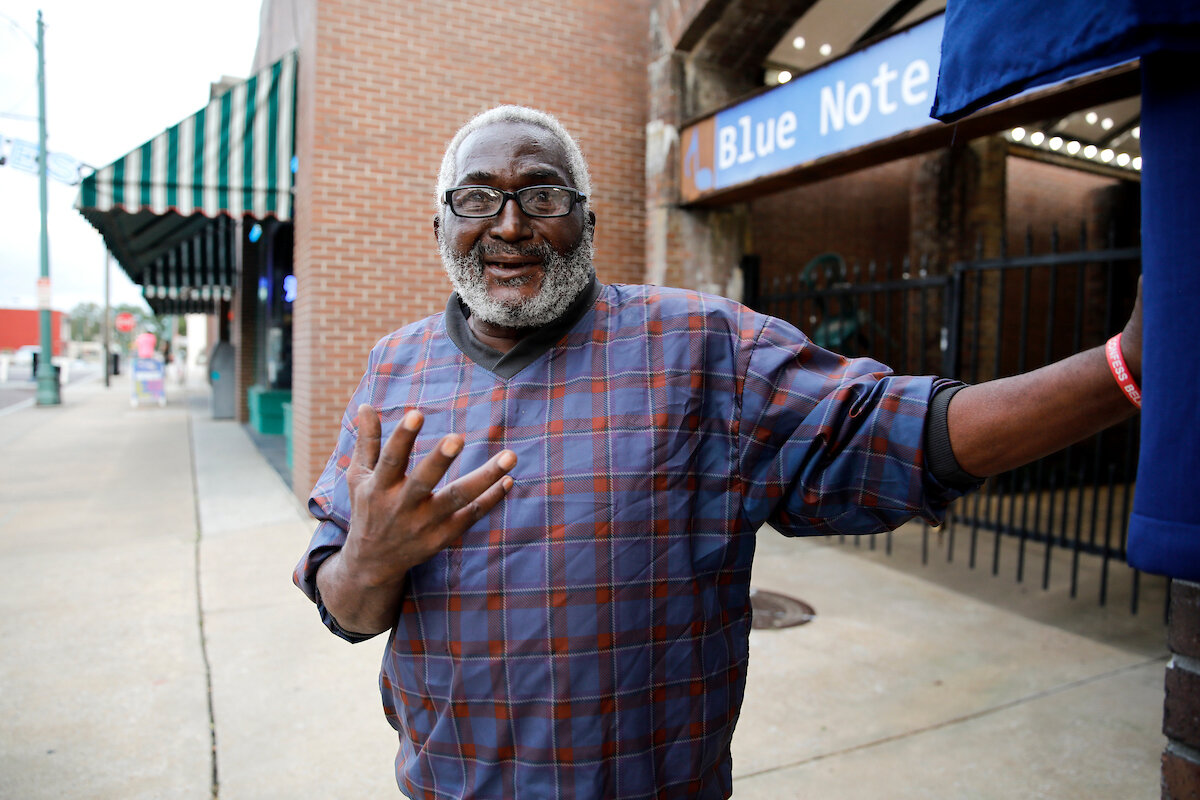







I met Sam “Black Smoke” Wiggins walking down Beale Street in Memphis. He said he used to play on Beale Street but with Covid the street performers have been told they can only play in the official clubs. He did once jump in to play bass with BB King at the New Daisy theater when King's bassist was sick, but on this particular evening, he’d come just to hear some friends play. He still had his guitar with him, though, and his foot never stopped tapping to the beat.
Black Smoke (who I could call Sam, but why would I when Black Smoke is an option?) is from the little tiny town of Alligator, Mississippi. When he told me this, I repeated it back to him with wide eyes. "Alligator?” He loved that. He grew up in a family of gospel musicians, and they all sang and performed at church. He said he was the black sheep of the family because he was drawn to the blues—the devil music. As a kid he used to come to Beale Street with his dad and remembers one time that his dad got really excited because they saw Muddy Waters sitting on the curb. Black Smoke didn't know who he was—Muddy Waters wasn't super popular yet—but his dad talked about it the whole trip. Sounds to me like his father was also a fan of the blues, but never indulged in playing it.
After we’d talked for a while, Black Smoke asked if I wanted to hear him play, and of course I absolutely did. So he got his guitar, nodded to his friends who were performing, and after a minute they welcomed him up on stage. He played an original he'd been working on during the pandemic—Delta blues style, but with a twist. He told me he’d honed his style through 20 years in the army, when he used to like to play music in the rec room with soldiers from all over the US.
I could've talked to Black Smoke all night long. Both of us are clinging to the work we're passionate about as a way to make it through.
